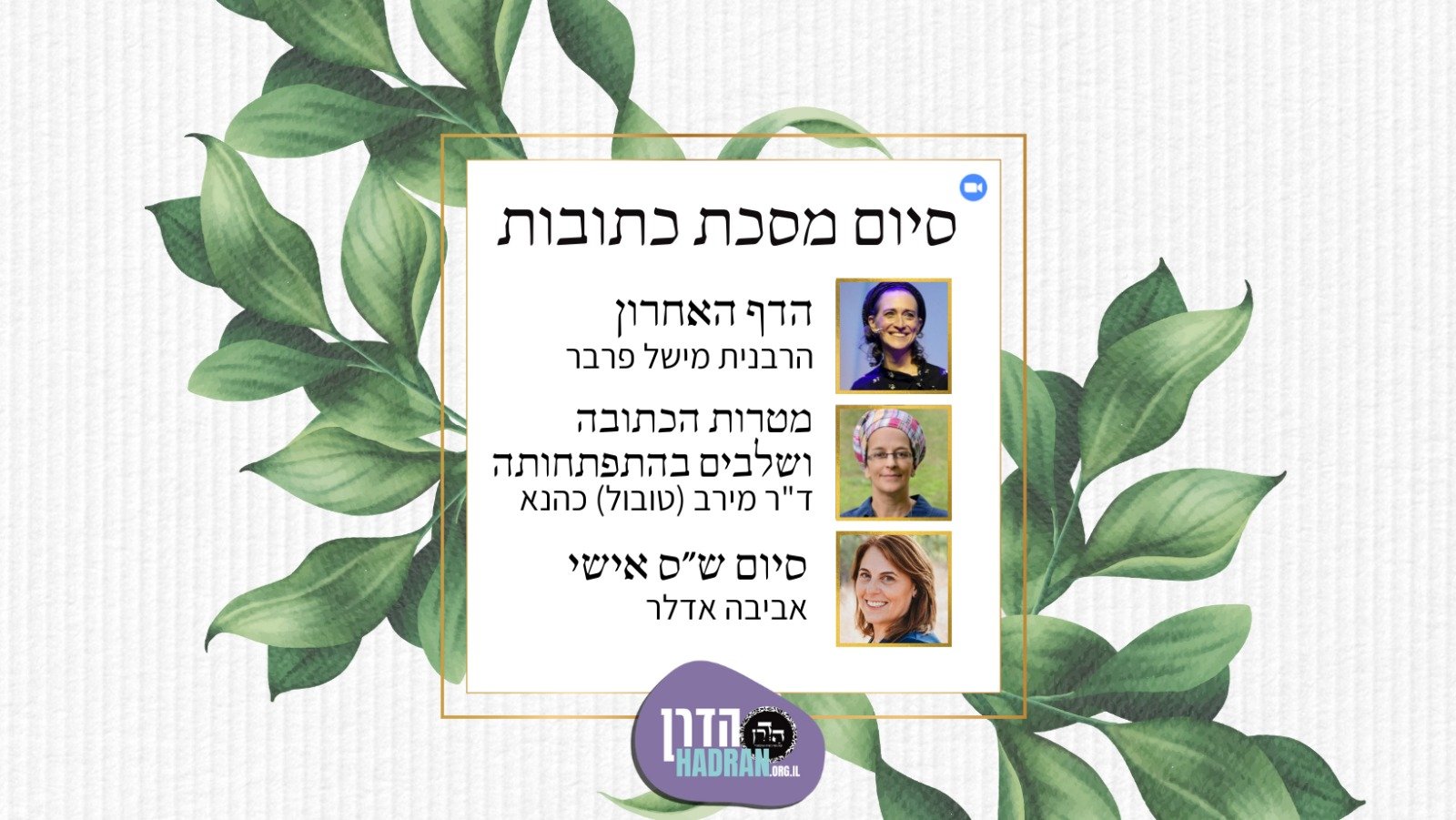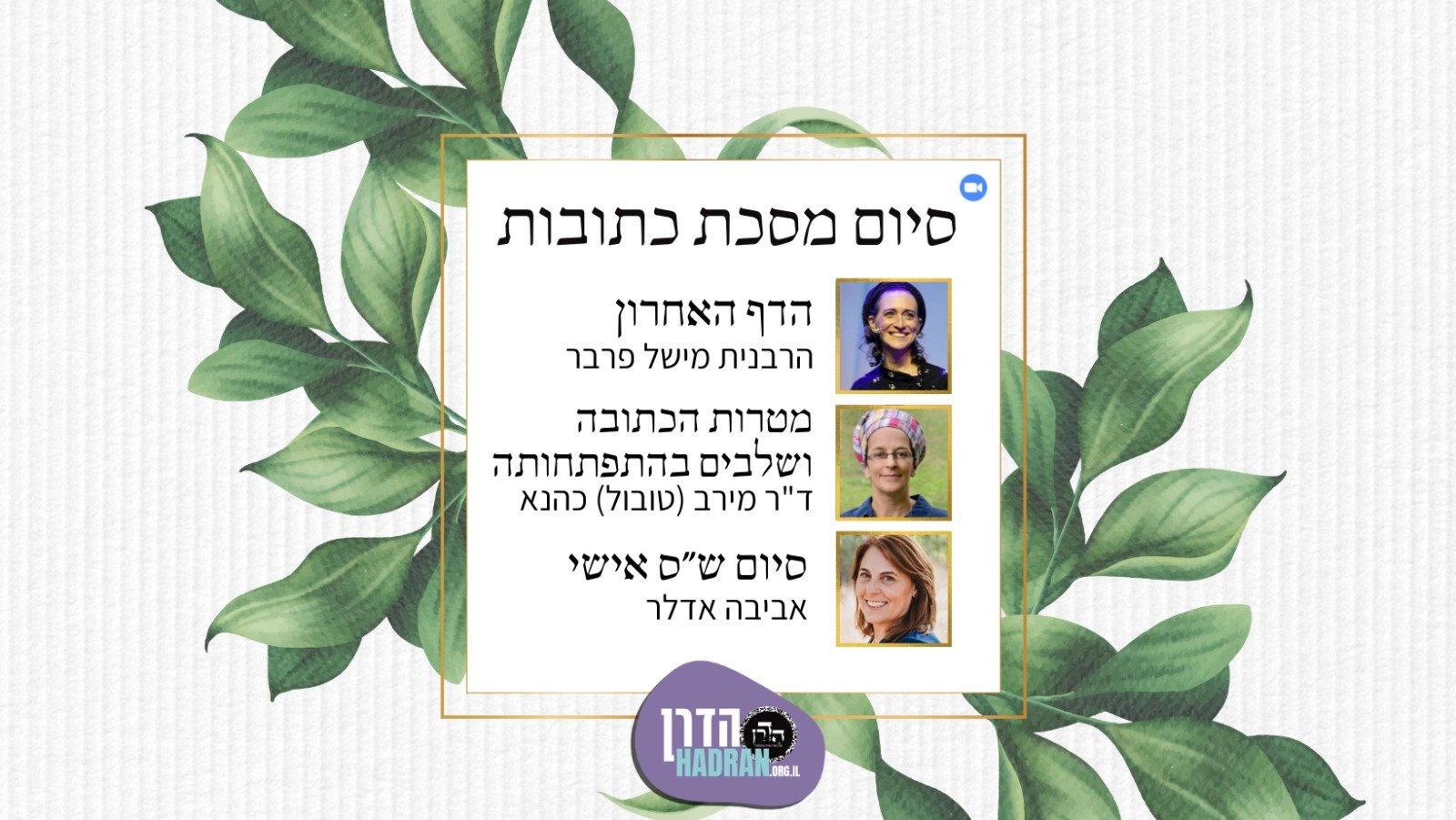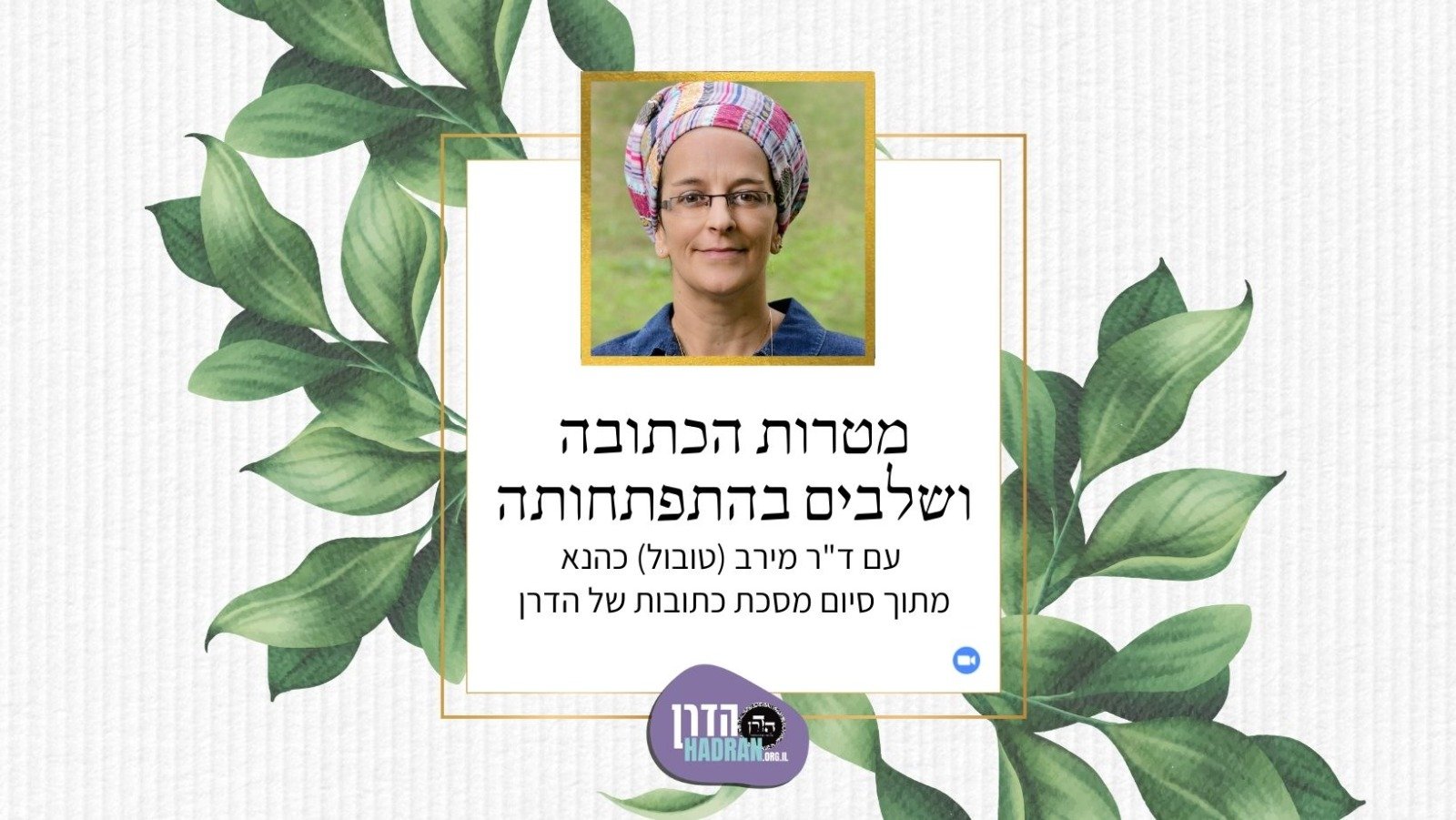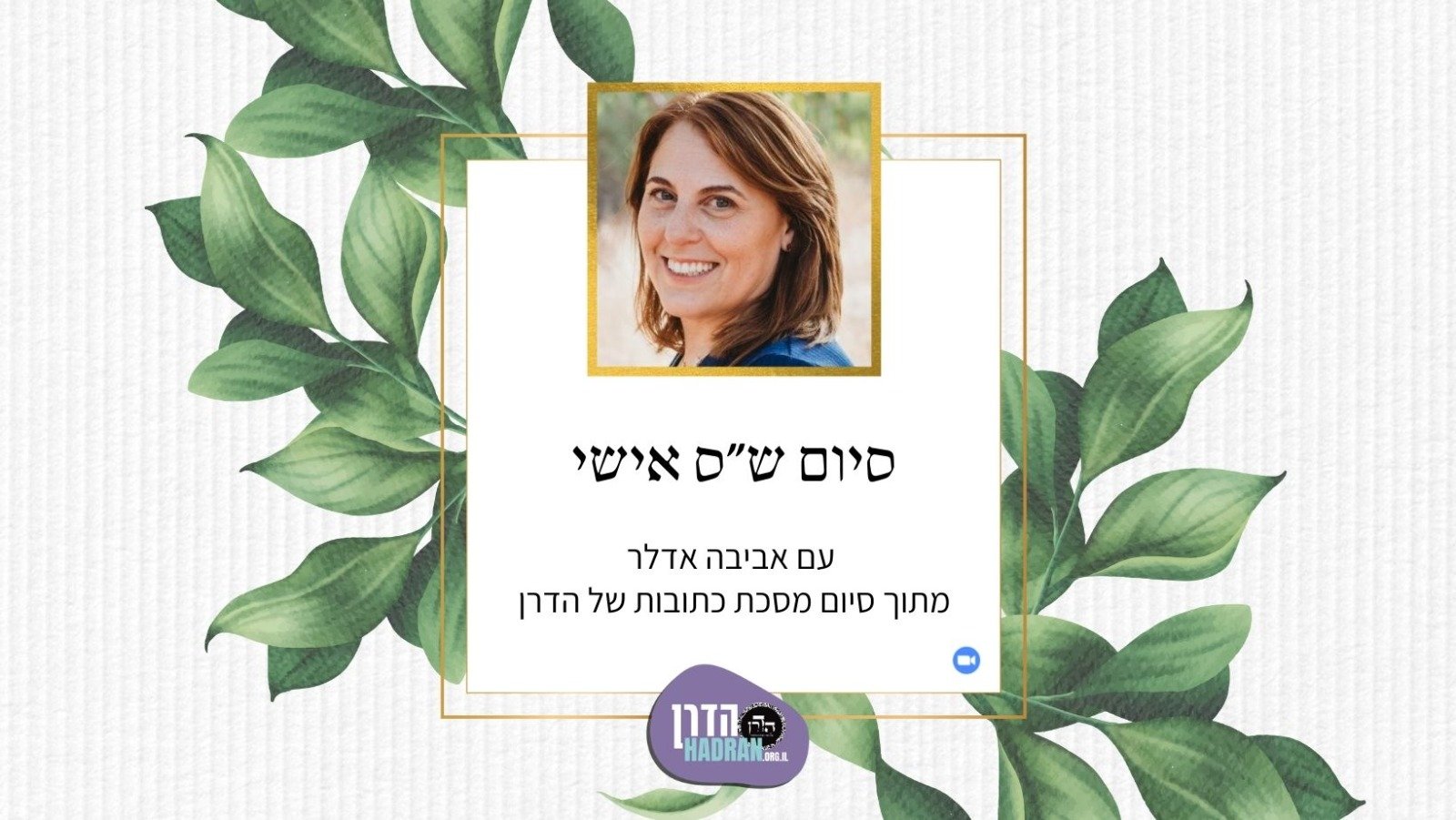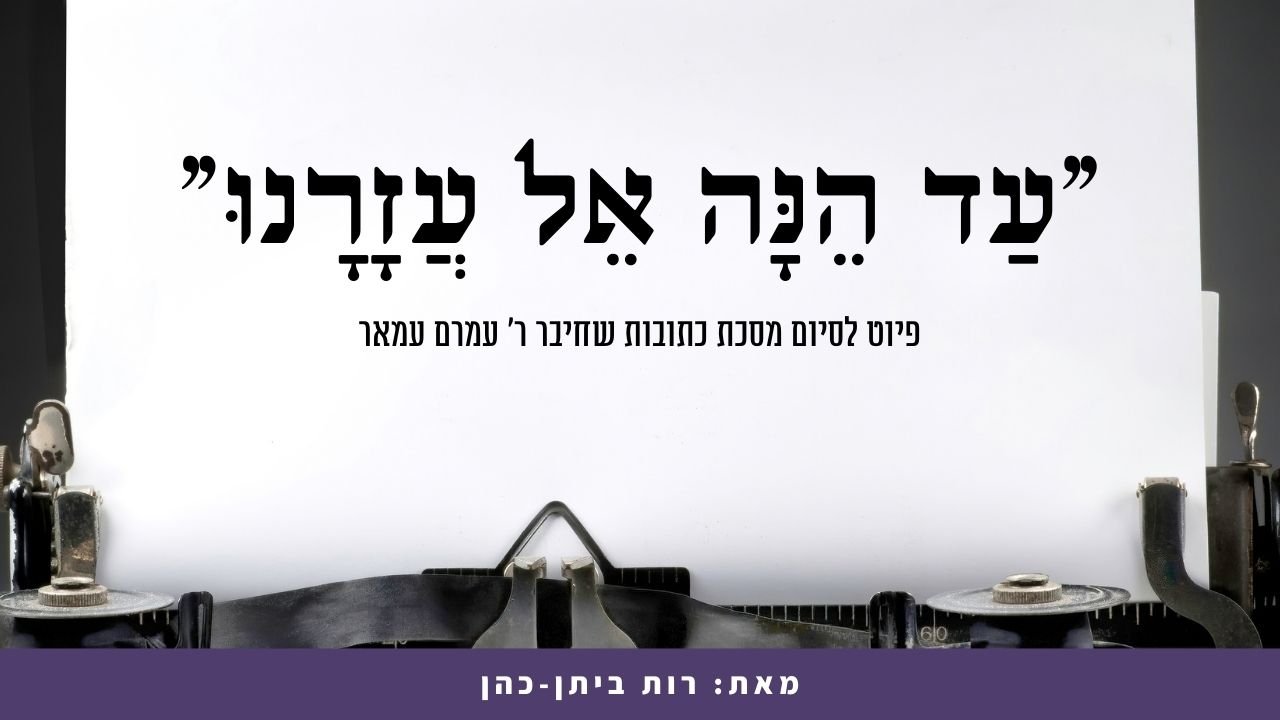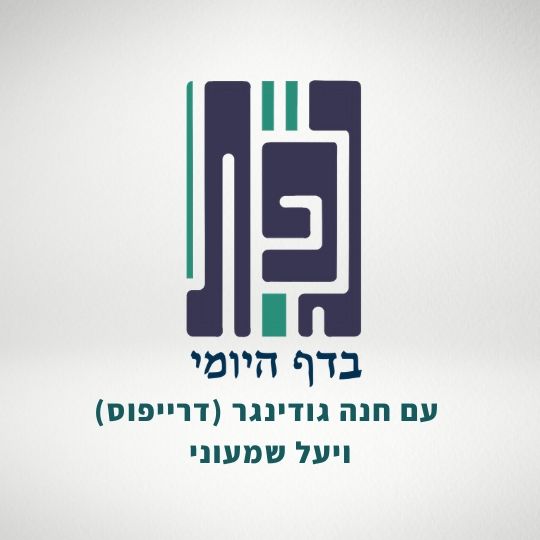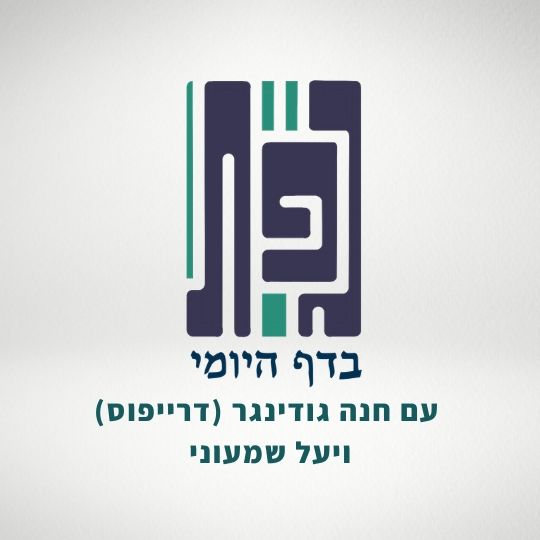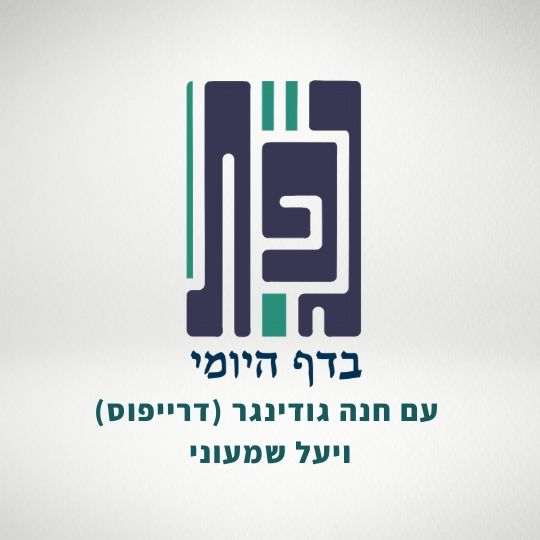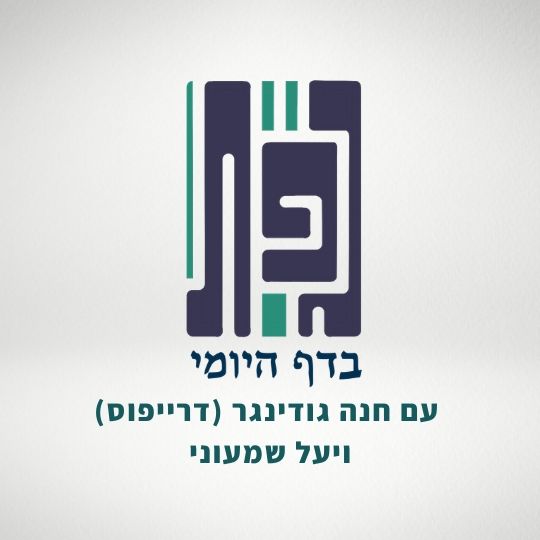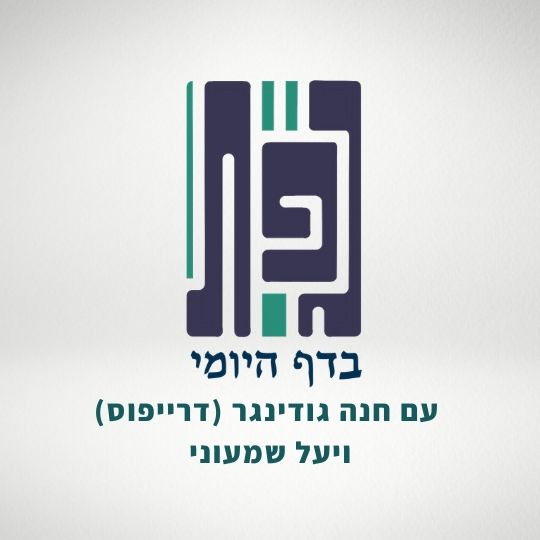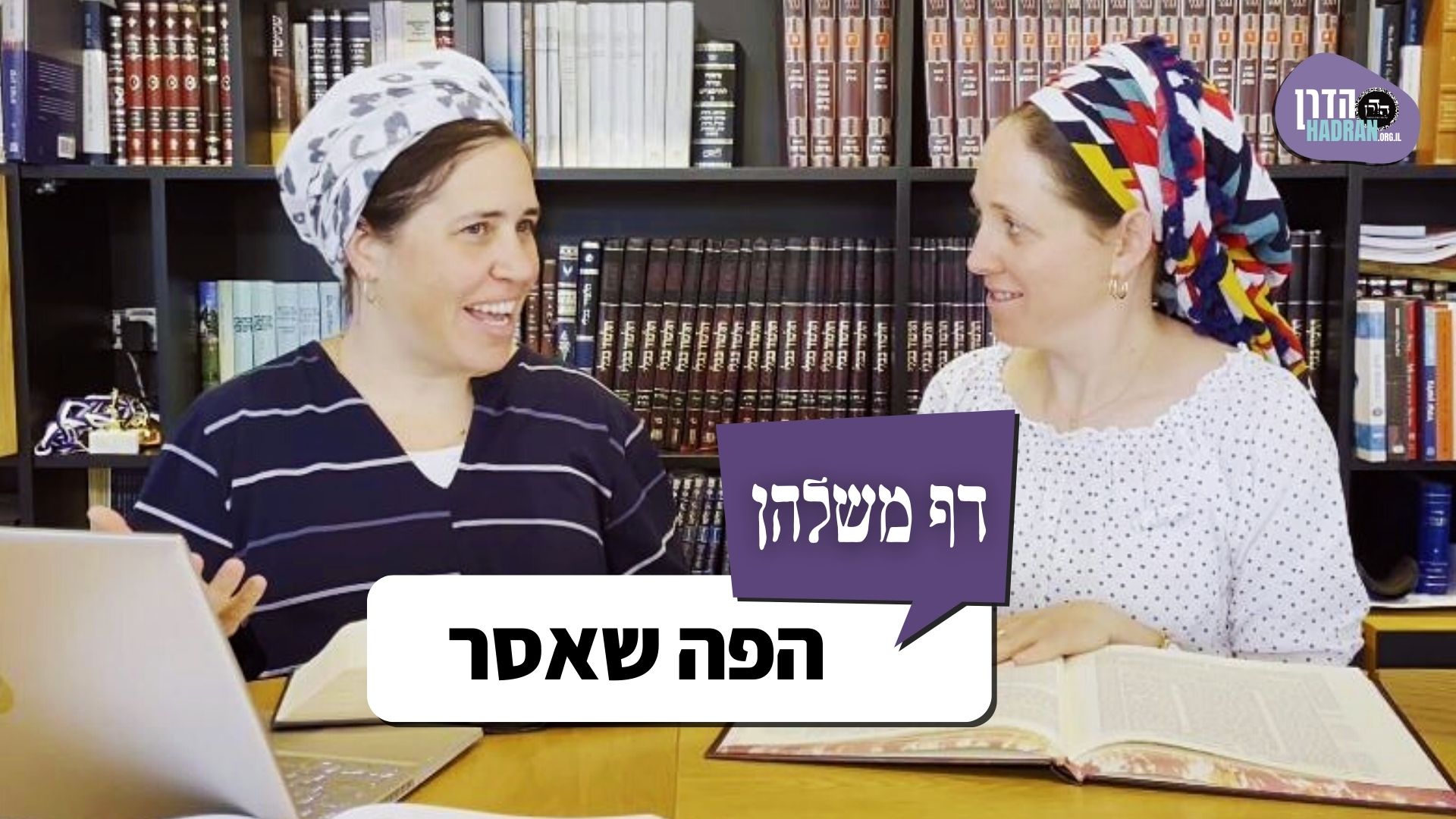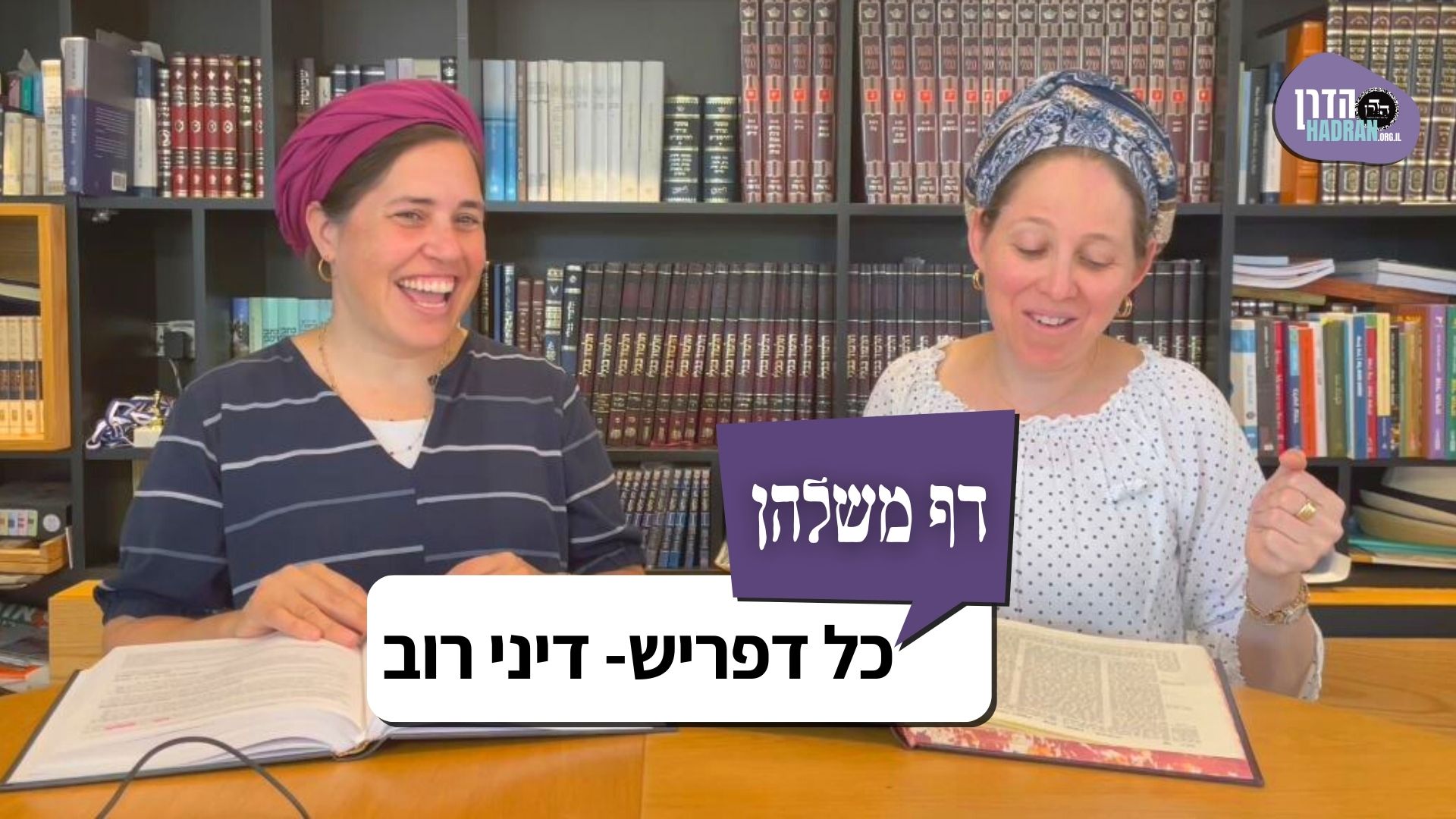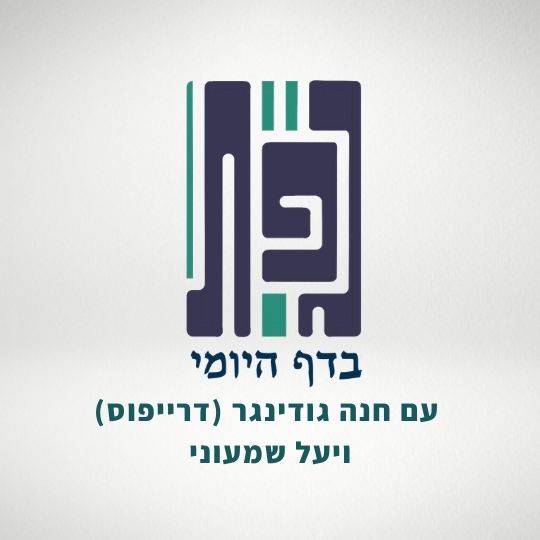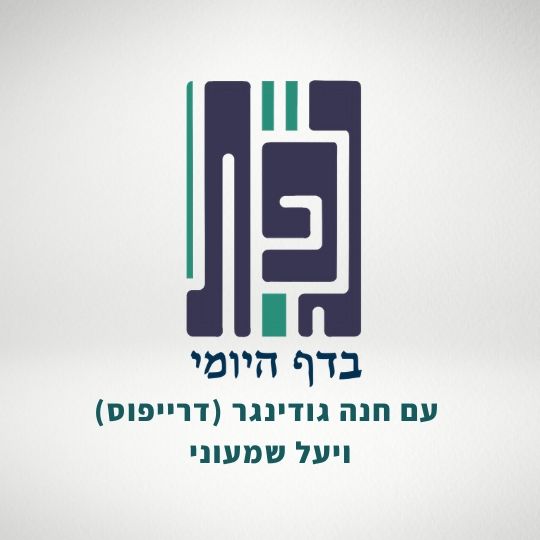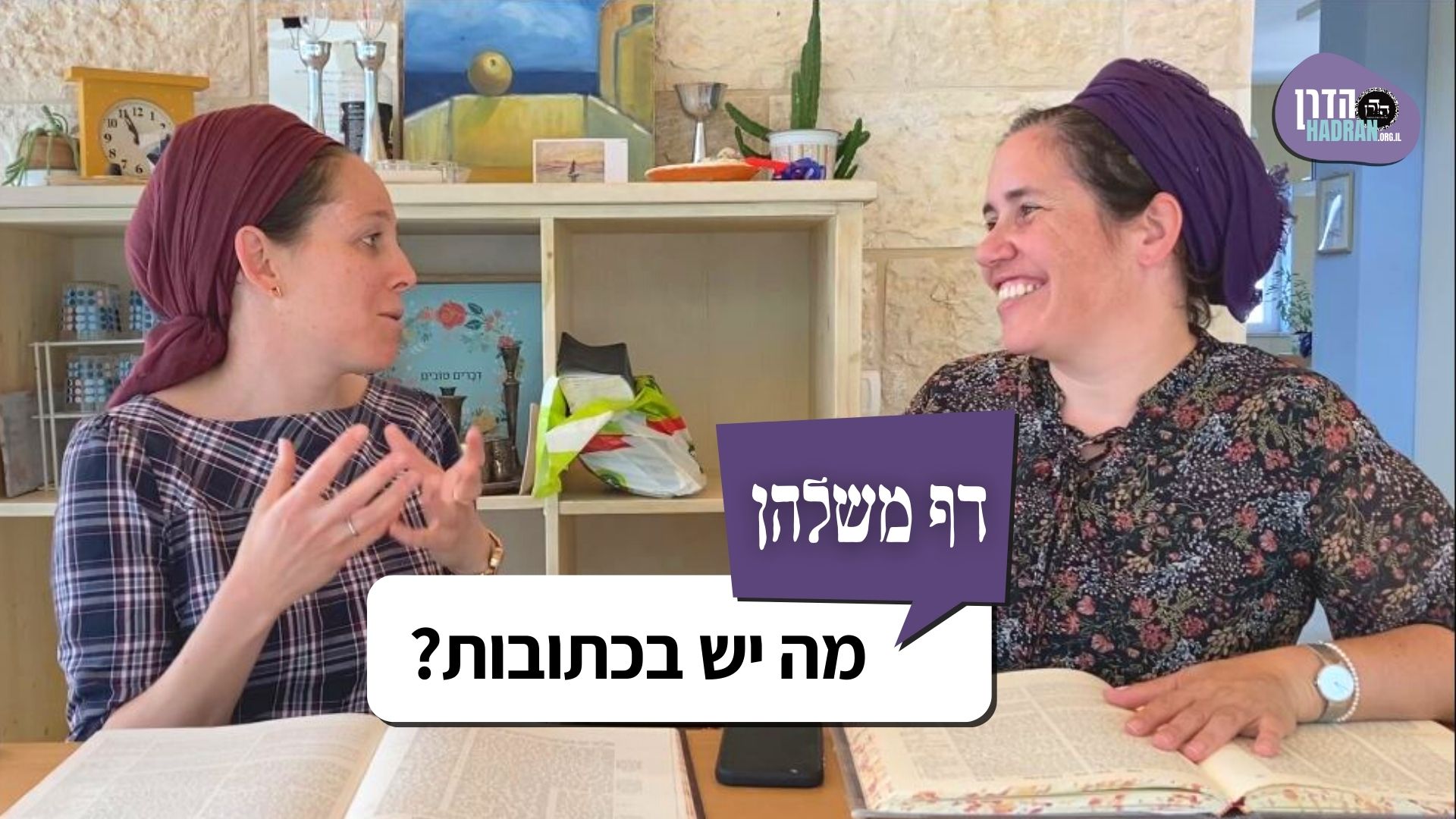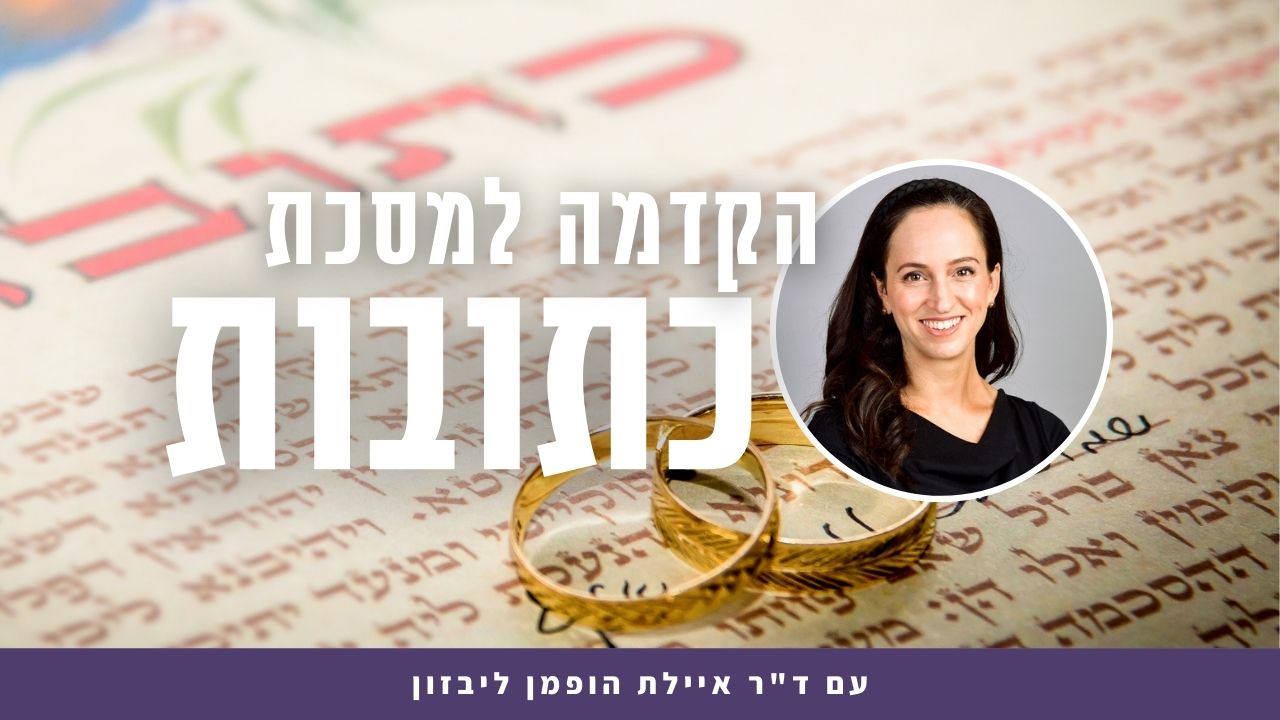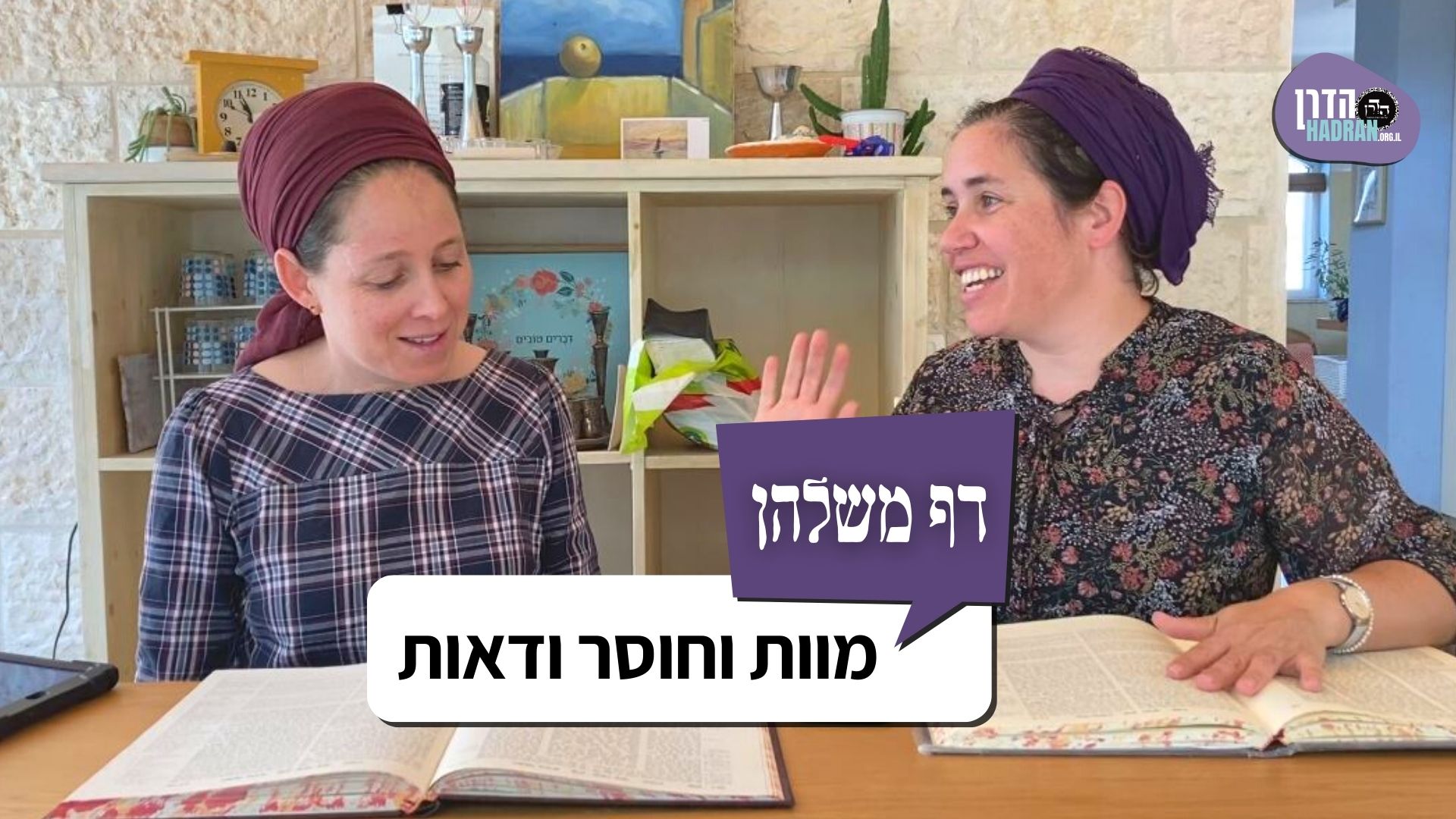כתובות ז
פָּטוּר. הָתָם, פְּקִיד וַעֲקִיר. הָכָא, פְּקִיד וְלָא עֲקִיר.
he is exempt. In this case, exempt means permitted ab initio. Ostensibly, intercourse with a virgin is comparable to creating an opening in an abscess. Why then, would intercourse with a virgin be forbidden on Shabbat? The Gemara rejects the proof: There, the pus in the abscess is pooled in one place and completely removed from the vessels in the flesh. In creating the opening, he creates nothing enduring. Here, however, in the case of the ruptured hymen, even according to the opinion that the blood is pooled, it is not completely removed from the blood vessels in the flesh. Through intercourse, the blood is removed from its place, which constitutes an aspect of a prohibited labor.
רַבִּי אַמֵּי שְׁרָא לְמִיבְעַל בַּתְּחִלָּה בְּשַׁבָּת. אָמְרִי לֵיהּ רַבָּנַן: וְהָא לָא כְּתִיבָא כְּתוּבָּתָהּ! אֲמַר לְהוּ: אַתְפְּסוּהָ מִטַּלְטְלִין.
The Gemara relates: Rav Ami permitted one to engage in intercourse with his virgin wife for the first time on Shabbat. The Sages said to him: But her marriage contract is not yet written. Engaging in conjugal relations with one’s wife without a marriage contract is considered an act of promiscuity. He said to them: Have her seize a portion of her husband’s movable property equivalent to the value of her marriage contract, and that will serve as a deposit until he writes the marriage contract. He may then engage in sexual relations with her.
רַב זְבִיד שְׁרָא לְמִיבְעַל בַּתְּחִלָּה בְּשַׁבָּת. אִיכָּא דְּאָמְרִי: רַב זְבִיד גּוּפֵיהּ בְּעַל בַּתְּחִלָּה בְּשַׁבָּת.
The Gemara relates: Rav Zevid permitted one to engage in intercourse with his virgin wife for the first time on Shabbat. There are those who say: Rav Zevid himself engaged in intercourse with his virgin wife for the first time on Shabbat.
רַב יְהוּדָה שְׁרָא לְמִיבְעַל בַּתְּחִלָּה בְּיוֹם טוֹב. אָמַר רַב פַּפִּי מִשְּׁמֵיהּ דְּרָבָא: לָא תֵּימָא בְּיוֹם טוֹב דִּשְׁרֵי, הָא בְּשַׁבָּת אֲסִיר, דְּהוּא הַדִּין דַּאֲפִילּוּ בְּשַׁבָּת נָמֵי שְׁרֵי, וּמַעֲשֶׂה שֶׁהָיָה כָּךְ הָיָה.
It was further related: Rav Yehuda permitted one to engage in intercourse with his virgin wife for the first time on a Festival. Rav Pappi said in the name of Rava: Do not infer and say: It is on a Festival that it is permitted, but on Shabbat it is prohibited, similar to actions involving food preparation, which are permitted on Festivals and prohibited on Shabbat, as the same is true that even on Shabbat it is permitted. And the reason Rav Yehuda issued his ruling with regard to a Festival is due to the fact that the incident that took place, took place in this way.
רַב פָּפָּא מִשְּׁמֵיהּ דְּרָבָא אָמַר: בְּיוֹם טוֹב שְׁרֵי, בְּשַׁבָּת אֲסִיר. אֲמַר לֵיהּ רַב פַּפִּי לְרַב פָּפָּא: מַאי דַּעְתָּיךְ — מִתּוֹךְ שֶׁהוּתְּרָה חַבּוּרָה לְצוֹרֶךְ, הוּתְּרָה נָמֵי שֶׁלֹּא לְצוֹרֶךְ? אֶלָּא מֵעַתָּה, מוּתָּר לַעֲשׂוֹת מוּגְמָר בְּיוֹם טוֹב, דְּמִתּוֹךְ שֶׁהוּתְּרָה הַבְעָרָה לְצוֹרֶךְ, הוּתְּרָה נָמֵי שֶׁלֹּא לְצוֹרֶךְ!
Rav Pappa said in the name of Rava: According to Rav Yehuda, on a Festival it is permitted, on Shabbat it is prohibited. Rav Pappi said to Rav Pappa: What is your thinking? Is it: Since causing a wound was permitted on a Festival when performed for the purpose of food preparation, it was also permitted when not performed for the purpose of food preparation? If that is so, it would be permitted to prepare incense [mugmar] on a Festival due to the following reason: Since kindling a fire was permitted on a Festival when performed for the purpose of food preparation, it was also permitted when not performed for the purpose of food preparation.
אֲמַר לֵיהּ, עָלֶיךָ אָמַר קְרָא: ״אַךְ אֲשֶׁר יֵאָכֵל לְכׇל נֶפֶשׁ״ — דָּבָר הַשָּׁוֶה לְכׇל נֶפֶשׁ.
Rav Pappa said to him: It is about your assertion that the verse states with regard to a Festival: “Save that which every person must eat, that alone may be done by you” (Exodus 12:16), indicating a matter that is equal for every person. Incense is burned only by those who are particularly delicate. It is not equally utilized by everyone, and therefore it is not permitted. Intercourse, on the other hand, is universally practiced.
אֲמַר לֵיהּ רַב אַחָא בְּרֵיהּ דְּרָבָא לְרַב אָשֵׁי: אֶלָּא מֵעַתָּה, נִזְדַּמֵּן לוֹ צְבִי בְּיוֹם טוֹב, הוֹאִיל וְאֵינוֹ שָׁוֶה לְכׇל נֶפֶשׁ, הָכִי נָמֵי דַּאֲסִיר לְמִשְׁחֲטֵיהּ? אֲמַר לֵיהּ: אֲנָא דְּבַר (הַ)צוֹרֶךְ לְכׇל נֶפֶשׁ קָאָמֵינָא, צְבִי צָרִיךְ לְכׇל נֶפֶשׁ הוּא.
Rav Aḥa, son of Rava, said to Rav Ashi: If that is so, if a deer happened to come into his possession on a Festival, since it is not a food that is equal for every person, would the ruling also be that it is prohibited to slaughter it? Rav Ashi said to him: I said a matter that is a need for every person, and deer meat is a matter that although difficult to acquire, is a need for every person. Incense, even when available, is not universally utilized.
אָמַר רַבִּי יַעֲקֹב בַּר אִידִי, הוֹרָה רַבִּי יוֹחָנָן בְּצַיְידָן: אָסוּר לִבְעוֹל בַּתְּחִלָּה בַּשַּׁבָּת. וּמִי אִיכָּא הוֹרָאָה לְאִיסּוּר?
Rabbi Ya’akov bar Idi said: Rabbi Yoḥanan issued a ruling in the city of Tzaidan: It is prohibited to engage in intercourse with one’s virgin wife for the first time on Shabbat. The Gemara asks: And is there a ruling issued to prohibit an action? Typically, that language is utilized in reference to a firmly established ruling. A stringent ruling can be issued even based on uncertainty. In contrast, a lenient ruling can be issued only if the matter is clearly established by means of tradition or the reasoning of the Sage issuing the ruling.
אִין, וְהָתְנַן: הוֹרוּהָ בֵּית הִלֵּל שֶׁתְּהֵא נְזִירָה עוֹד שֶׁבַע שָׁנִים אֲחֵרוֹת.
The Gemara answers: Yes, that language is used with regard to a stringent ruling, as didn’t we learn the following in a mishna (Nazir 19b): When Queen Helene’s son went to war, she took a vow to be a nazirite for seven years, and she fulfilled that vow for the duration of her stay in the Diaspora? When she immigrated to Eretz Yisrael, Beit Hillel issued a ruling that she shall be a nazirite for seven additional years. Apparently, rulings are issued to prohibit an action as well.
וְאִי נָמֵי, כִּי הָא דְּתַנְיָא: חוּט הַשִּׁדְרָה שֶׁנִּפְסַק בְּרוּבּוֹ, דִּבְרֵי רַבִּי. רַבִּי יַעֲקֹב אוֹמֵר: אֲפִילּוּ נִיקַּב. הוֹרָה רַבִּי כְּרַבִּי יַעֲקֹב. אָמַר רַב הוּנָא: אֵין הֲלָכָה כְּרַבִּי יַעֲקֹב.
And alternatively, this is similar to that which is taught in a baraita: If a majority of the spinal cord of an animal is severed, the animal is a tereifa; this is the statement of Rabbi Yehuda HaNasi. Rabbi Ya’akov says: Even if the spinal cord is perforated but otherwise intact, the animal is a tereifa. The baraita continues: Rabbi Yehuda HaNasi issued a ruling in accordance with the opinion of Rabbi Ya’akov. Here too, the term: Issue a ruling, is employed with regard to a stringent ruling. Rav Huna said: Despite the fact that Rabbi Yehuda HaNasi ruled in accordance with his opinion, the halakha is not in accordance with the opinion of Rabbi Ya’akov, but rather it is in accordance with the opinion of Rabbi Yehuda HaNasi. This is one version of this discussion.
רַב נַחְמָן בַּר יִצְחָק מַתְנֵי הָכִי: אָמַר רַבִּי אֲבָהוּ, שָׁאַל רַבִּי יִשְׁמָעֵאל בֶּן יַעֲקֹב דְּמִן צוּר אֶת רַבִּי יוֹחָנָן בְּצַיְידָן, וַאֲנָא שְׁמַעִי: מַהוּ לִבְעוֹל בַּתְּחִלָּה בַּשַּׁבָּת, וַאֲמַר לֵיהּ: אָסוּר. וְהִלְכְתָא: מוּתָּר לִבְעוֹל בַּתְּחִלָּה בַּשַּׁבָּת.
Rav Naḥman bar Yitzḥak taught this alternative version of the ruling of Rabbi Yoḥanan. Rav Abbahu said: Rabbi Yishmael ben Ya’akov, who is from Tyre, asked Rabbi Yoḥanan in Tzaidan, and I heard the exchange: What is the halakha with regard to engaging in intercourse with one’s virgin wife for the first time on Shabbat? And he said to him: It is prohibited. The Gemara concludes: And the halakha is that it is permitted to engage in intercourse with one’s virgin wife for the first time on Shabbat, and one need not be concerned lest he cause a wound, create an opening, or initiate bleeding.
אָמַר רַבִּי חֶלְבּוֹ אָמַר רַב הוּנָא אָמַר רַבִּי אַבָּא בַּר זַבְדָּא אָמַר רַב: אַחַת בְּתוּלָה וְאַחַת אַלְמָנָה טְעוּנָה בְּרָכָה. וּמִי אָמַר רַב הוּנָא הָכִי? וְהָאָמַר רַב הוּנָא: אַלְמָנָה אֵינָהּ טְעוּנָה בְּרָכָה! לָא קַשְׁיָא: כָּאן בְּבָחוּר שֶׁנָּשָׂא אַלְמָנָה, כָּאן בְּאַלְמוֹן שֶׁנָּשָׂא אַלְמָנָה.
§ Rabbi Ḥelbo said that Rav Huna said that Rabbi Abba bar Rav Zavda said that Rav said: Both a virgin and a widow who marry require that the benediction of the grooms be recited. The Gemara asks: Did Rav Huna say that? But didn’t Rav Huna say: A widow does not require that a benediction be recited? The Gemara answers: This is not difficult. Here, where Rav Huna said that a widow requires a benediction, it is with regard to a bachelor who married a widow. There, where Rav Huna said she does not require a benediction, it is with regard to a widower who married a widow.
וְאַלְמוֹן שֶׁנָּשָׂא אַלְמָנָה לָא? וְהָאָמַר רַב נַחְמָן, אָמַר לִי הוּנָא בַּר נָתָן, תָּנָא: מִנַּיִן לְבִרְכַּת חֲתָנִים בַּעֲשָׂרָה — שֶׁנֶּאֱמַר: ״וַיִּקַּח עֲשָׂרָה אֲנָשִׁים מִזִּקְנֵי הָעִיר וַיֹּאמֶר שְׁבוּ פֹה וַיֵּשֵׁבוּ״. וּבוֹעַז אַלְמוֹן שֶׁנָּשָׂא אַלְמָנָה הֲוָה.
The Gemara asks: And does a widower who married a widow not require a benediction to be recited? But didn’t Rav Naḥman say: Huna bar Natan said to me that it was taught: From where is it derived that the benediction of the grooms is recited in a quorum of ten men? It is as it is stated with regard to Boaz, who married Ruth: “And he took ten men of the Elders of the city and said: Sit you here, and they sat” (Ruth 4:2). And when Boaz married Ruth, he was a widower marrying a widow. As that is the primary source for the obligation to recite the benediction, apparently the benediction is recited even in that case.
מַאי ״אֵינָהּ טְעוּנָה בְּרָכָה״ דְּאָמַר רַב הוּנָא — אֵינָהּ טְעוּנָה בְּרָכָה כׇּל שִׁבְעָה, אֲבָל יוֹם אֶחָד טְעוּנָה בְּרָכָה.
The Gemara answers: What is the meaning of: Does not require a benediction, that Rav Huna stated? It means that she does not require a benediction all seven days of the wedding celebration, but everyone agrees that for one day, she requires that a benediction be recited.
אֶלָּא הָא דְּתַנְיָא: שָׁקְדוּ חֲכָמִים עַל תַּקָּנַת בְּנוֹת יִשְׂרָאֵל שֶׁיְּהֵא שָׂמֵחַ עִמָּהּ שְׁלֹשָׁה יָמִים. בְּמַאי: אִי בְּבָחוּר, הָאָמְרַתְּ שִׁבְעָה! אִי בְּאַלְמוֹן, הָאָמְרַתְּ יוֹם אֶחָד?
The Gemara asks: However, that which is taught in a baraita, that the Sages were assiduous in seeing to the well-being of Jewish women, ensuring that the groom will rejoice with her three days, and that is why they established that a widow is married on Thursday, with regard to what circumstance is the baraita speaking? If it is with regard to a bachelor who marries a widow, didn’t you say he celebrates seven days; why then did the Sages see to a mere three-day celebration? If it is with regard to a widower who marries a widow, didn’t you say he celebrates for one day? Why then did the Sages see to a three-day celebration?
אִיבָּעֵית אֵימָא: בְּאַלְמוֹן — יוֹם אֶחָד לִבְרָכָה, וּשְׁלֹשָׁה לְשִׂמְחָה. וְאִיבָּעֵית אֵימָא: בְּבָחוּר — שִׁבְעָה לִבְרָכָה, וּשְׁלֹשָׁה לְשִׂמְחָה.
The Gemara answers that this can be resolved in several manners. If you wish, say: In the case of a widower marrying a widow, there is one day for benediction and three days for celebration. The wedding is scheduled on Thursday to facilitate a three-day celebration. And if you wish, say instead: In the case of a bachelor marrying a widow, there are seven days for benediction and there are three days for celebration, during which he must refrain from going to work.
מֵיתִיבִי: מְבָרְכִין לִבְתוּלָה שִׁבְעָה וּלְאַלְמָנָה יוֹם אֶחָד. מַאי לָאו, אֲפִילּוּ אַלְמָנָה שֶׁנִּשֵּׂאת לְבָחוּר! לֹא, לְאַלְמוֹן. אֲבָל לְבָחוּר מַאי, שִׁבְעָה? אִי הָכִי לִיתְנֵי: מְבָרְכִין לִבְתוּלָה שִׁבְעָה, וּלְאַלְמָנָה שֶׁנִּשֵּׂאת לְבָחוּר שִׁבְעָה, וּלְאַלְמָנָה יוֹם אֶחָד?
The Gemara raises an objection from a baraita: One recites a benediction for a virgin who marries for seven days and for a widow who marries for one day. What, is it not even in the case of a widow who is married to a bachelor, that one recites the benediction for one day? The Gemara answers: No, it is only in the case of a widow who is married to a widower that the benediction is recited for one day. The Gemara asks: However, one may then infer that in the case of a widow who is married to a bachelor, what is the halakha? The blessing is recited seven days? If so, let the tanna teach the baraita: One recites a benediction for a virgin who marries for seven days, and for a widow who marries a bachelor seven days, and for a widow marrying a widower for one day. Why was the middle case omitted?
מִילְּתָא פְּסִיקְתָּא קָתָנֵי, דְּלֵיכָּא בְּתוּלָה דְּבָצְרָה מִשִּׁבְעָה, וְלֵיכָּא אַלְמָנָה דְּבָצְרָה מִיּוֹם אֶחָד.
Although the tanna could have included that case in the baraita, he taught categorical matters. He preferred to avoid entering into detail, as there is no virgin for whom the benediction is recited fewer than seven days, and there is no widow for whom the benediction is recited for less than one day. However, there are circumstances where even for a widow the benediction is recited for more than one day.
גּוּפָא, אָמַר רַב נַחְמָן: אָמַר לִי הוּנָא בַּר נָתָן, תָּנָא: מִנַּיִן לְבִרְכַּת חֲתָנִים בַּעֲשָׂרָה — שֶׁנֶּאֱמַר: ״וַיִּקַּח עֲשָׂרָה אֲנָשִׁים מִזִּקְנֵי הָעִיר וַיֹּאמֶר שְׁבוּ פֹה״. וְרַבִּי אֲבָהוּ אָמַר, מֵהָכָא: ״בְּמַקְהֵלוֹת בָּרְכוּ אֱלֹהִים ה׳ מִמְּקוֹר יִשְׂרָאֵל״.
§ Apropos the source for the benediction of the grooms, the Gemara discusses the matter itself. Rav Naḥman said: Huna bar Natan said to me that it was taught: From where is it derived that the benediction of the grooms is recited in a quorum of ten men? It is as it is stated: “And he took ten men of the Elders of the city and said: Sit you here, and they sat” (Ruth 4:2). And Rabbi Abbahu said that the source is from here: “In assemblies [mak’helot], bless God, the Lord, from the source of Israel” (Psalms 68:27). This verse indicates that a congregation [kahal], which contains at least ten men, blesses God when reciting a benediction related to the source of Israel, i.e., conjugal relations, which will lead to the birth of Jewish children.
וְרַב נַחְמָן, בְּהַאי קְרָא דְּרַבִּי אֲבָהוּ מַאי דָּרֵישׁ בֵּיהּ? מִיבְּעֵי לֵיהּ לְכִדְתַנְיָא, הָיָה רַבִּי מֵאִיר אוֹמֵר: מִנַּיִן שֶׁאֲפִילּוּ עוּבָּרִים שֶׁבִּמְעֵי אִמָּן אָמְרוּ שִׁירָה עַל הַיָּם — שֶׁנֶּאֱמַר: ״בְּמַקְהֵלוֹת בָּרְכוּ אֱלֹהִים ה׳ מִמְּקוֹר יִשְׂרָאֵל״. וְאִידַּךְ? אִם כֵּן, לֵימָא קְרָא ״מִבֶּטֶן״. מַאי ״מִמְּקוֹר״ — עַל עִסְקֵי מְקוֹר.
And what does Rav Naḥman derive from this verse from which Rabbi Abbahu derived that halakha? He requires the verse to derive that which is taught in a baraita: Rabbi Meir would say: From where is it derived that even fetuses in their mother’s womb recited the song at the Red Sea? It is as it is stated in the chapter of Psalms that describes the exodus from Egypt: “In assemblies, bless God, the Lord, from the source of Israel.” Even those fetuses that were still in the source, i.e., the womb, joined the assemblies in blessing God. And the other Sage, Rabbi Abbahu says: If that is the meaning, let the verse say: From the belly of Israel. What is the meaning of the term “source”? Clearly, it is referring to matters related to the source of Israel, i.e., the benediction of the grooms, which must be recited in a congregation, a quorum of ten.
וְרַבִּי אֲבָהוּ, בְּהַאי קְרָא דְּרַב נַחְמָן מַאי דָּרֵישׁ בֵּיהּ? הָהוּא מִיבְּעֵי לֵיהּ לְמִידְרַשׁ: עַמּוֹנִי וְלֹא עַמּוֹנִית, מוֹאָבִי וְלֹא מוֹאָבִית. דְּאִי סָלְקָא דַעְתָּךְ לִבְרָכָה, לָא סַגִּיא דְּלָאו זְקֵנִים.
And what does Rabbi Abbahu derive from this verse from which Rav Naḥman derived his halakha? He requires the verse stating that Boaz assembled ten men in order to teach that the Torah prohibition with regard to marrying members of the nations of Ammon and Moab is limited to a male Ammonite and not a female Ammonite, and to a male Moabite and not a female Moabite, as, if it would enter your mind that Boaz gathered the men only to recite a benediction, would it not have been sufficient if they were not Elders? From the fact that he convened a quorum of Elders, apparently it was to engage in halakhic discourse and to issue a halakhic ruling.
וְאִידַּךְ: אִי סָלְקָא דַּעְתָּךְ לְמִידְרַשׁ, לָא סַגִּיא דְּלָאו עֲשָׂרָה! אִין — לְפַרְסוֹמֵי מִילְּתָא, וּכְדַאֲמַר לֵיהּ שְׁמוּאֵל לְרַב חָנָא בַּגְדָּתָאָה: פּוֹק וְאַיְיתִי לִי בֵּי עַשְׂרָה, וְאֵימָא לָךְ בְּאַנְפַּיְיהוּ: הַמְזַכֶּה לְעוּבָּר קָנָה. וְהִלְכְתָא — הַמְזַכֶּה לְעוּבָּר לֹא קָנָה.
And the other Sage, Rav Naḥman, would reject that proof. If it would enter your mind that he gathered the men in order to teach a halakha, would it not have been sufficient if they were not ten? The Gemara answers: Yes, in fact a quorum of ten is not necessary to issue a halakhic ruling. Nevertheless, Boaz convened ten Elders to publicize the matter, as Shmuel said to Rav Ḥana of Baghdad: Go and bring me an assembly of ten men and I will say to you before them a halakha that I seek to disseminate: With regard to one who transfers ownership of an object to a fetus, the fetus acquires it, although it has not yet entered the world. Boaz too assembled ten Elders to publicize the matter. Apropos the halakha that Shmuel publicized, the Gemara rules: And the halakha is: With regard to one who transfers ownership of an object to a fetus, the fetus does not acquire it.
תָּנוּ רַבָּנַן: מְבָרְכִין בִּרְכַּת חֲתָנִים בְּבֵית חֲתָנִים. רַבִּי יְהוּדָה אוֹמֵר: אַף בְּבֵית הָאֵרוּסִין מְבָרְכִין אוֹתָהּ.
The Sages taught in a baraita: One recites the benediction of the grooms in the house of the grooms, when the bride enters into the wedding canopy. Rabbi Yehuda said: One recites it even in the house of the betrothal, at the time of the betrothal.
אָמַר אַבָּיֵי: וּבִיהוּדָה שָׁנוּ, מִפְּנֵי שֶׁמִּתְיַיחֵד עִמָּהּ.
Abaye said: And the Sages taught the statement of Rabbi Yehuda in Judea because there the custom was that the groom be secluded with his betrothed, leading to the concern lest he engage in conjugal relations with her. Therefore, the blessing is recited already at that stage.
תַּנְיָא אִידַּךְ: מְבָרְכִין בִּרְכַּת חֲתָנִים בְּבֵית חֲתָנִים, וּבִרְכַּת אֵרוּסִין בְּבֵית הָאֵרוּסִין. בִּרְכַּת הָאֵרוּסִין מַאי מְבָרֵךְ? רָבִין בַּר רַב אַדָּא וְרַבָּה בַּר רַב אַדָּא, תַּרְוַיְיהוּ מִשְּׁמֵיהּ דְּרַב יְהוּדָה אָמְרִי: ״בָּרוּךְ אַתָּה ה׳ אֱלֹהֵינוּ מֶלֶךְ הָעוֹלָם, אֲשֶׁר קִדְּשָׁנוּ בְּמִצְוֹתָיו, וְצִוָּנוּ עַל הָעֲרָיוֹת, וְאָסַר לָנוּ אֶת הָאֲרוּסוֹת, וְהִתִּיר לָנוּ אֶת הַנְּשׂוּאוֹת עַל יְדֵי חוּפָּה וְקִדּוּשִׁין״. רַב אַחָא בְּרֵיהּ דְּרָבָא מְסַיֵּים בַּהּ מִשְּׁמֵיהּ דְּרַב יְהוּדָה: ״בָּרוּךְ אַתָּה ה׳, מְקַדֵּשׁ יִשְׂרָאֵל עַל יְדֵי חוּפָּה וְקִדּוּשִׁין״.
It is taught in another baraita: One recites the benediction of the grooms in the house of the grooms, and the benediction of the betrothal in the house of the betrothal. With regard to the benediction of the betrothal, what formula does one recite? Ravin bar Rav Adda and Rabba bar Rav Adda both said in the name of Rav Yehuda: Blessed are You, Lord our God, King of the universe, Who sanctified us through His mitzvot, and commanded us concerning the forbidden relatives, and prohibited to us those women who are betrothed, and permitted to us those women who are married by means of the wedding canopy and betrothal. Rav Aḥa, son of Rava, concludes the blessing in the name of Rav Yehuda: Blessed are You, Lord, Who sanctifies Israel by means of the wedding canopy and betrothal.
מַאן דְּלָא חָתֵים, מִידֵּי דְּהָוֵה אַבִּרְכַּת פֵּרוֹת וְאַבִּרְכַּת מִצְוֹת. וּמַאן דְּחָתֵים, מִידֵּי דְּהָוֵה אַקִּידּוּשָׁא.
One who does not conclude the benediction of the betrothal in accordance with the opinion of Rav Aḥa, but instead recites it without a concluding blessing, deems the formula of this blessing just as the formula is in the blessing recited over fruits and the blessing recited over mitzvot, in which the words: Blessed are You, Lord, appear only at the beginning of the blessing. And one who concludes the benediction of the betrothal in accordance with the opinion of Rav Aḥa, deems the formula of this blessing just as the formula is in the blessing of kiddush, in which the words: Blessed are You, Lord, appears both at the beginning and the conclusion of the blessing.
תָּנוּ רַבָּנַן: מְבָרְכִין בִּרְכַּת חֲתָנִים בַּעֲשָׂרָה כׇּל שִׁבְעָה. אָמַר רַב יְהוּדָה: וְהוּא שֶׁבָּאוּ פָּנִים חֲדָשׁוֹת.
§ The Sages taught: One recites the benediction of the grooms in a quorum of ten men all seven days of the wedding celebration. Rav Yehuda said: And that is the case only when new faces who did not previously participate in the festivities came to join the celebration.
מַאי מְבָרֵךְ? אָמַר רַב יְהוּדָה: ״בָּרוּךְ אַתָּה ה׳ אֱלֹהֵינוּ מֶלֶךְ הָעוֹלָם,
The Gemara asks: What blessings does one recite? Rav Yehuda said that these are the seven blessings: Blessed are You, Lord our God, King of the universe,

